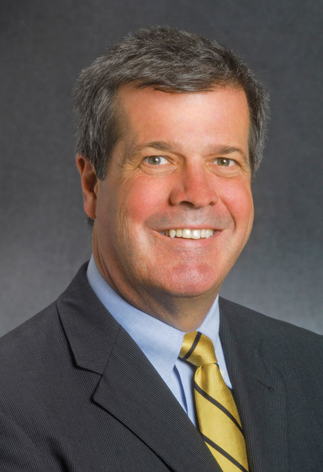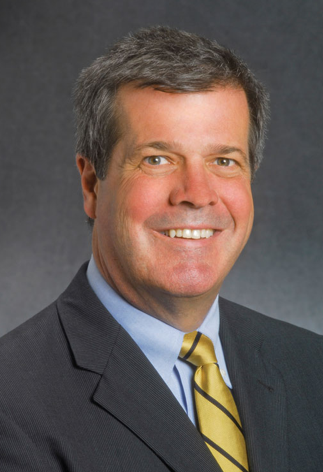 This post is the eleventh post in a series of blogs examining where 2018 candidates for state and federal offices in the Southeast stand on key energy and climate issues. To read the candidate profile for Republican Nominee for Tennessee Governor, Bill Lee, click here.
This post is the eleventh post in a series of blogs examining where 2018 candidates for state and federal offices in the Southeast stand on key energy and climate issues. To read the candidate profile for Republican Nominee for Tennessee Governor, Bill Lee, click here.
Note: The Southern Alliance for Clean Energy does not support or oppose candidates or political parties. Links to reports, candidate websites and outside sources are provided as citizen education tools.
Democratic gubernatorial candidate Karl Dean and Republican gubernatorial candidate Bill Lee will participate in three debates before the election, on Oct. 2 in Memphis at the University of Memphis, on Oct. 9 in Kingsport at the Eastman Employee Center, and on Oct. 12 in Nashville at Belmont University. For more information, click here.
 Candidate: Karl Dean
Candidate: Karl Dean
In this blog, we examine the policies and positions of Karl Dean, former mayor of Nashville, former Director of Law and public defender for Nashville, and current professor at Belmont University. According to his website, during his time as mayor, Dean established an Office of Sustainability, greatly expanded greenways, parks, and recycling in Nashville. While he was mayor Dean stated “Never underestimate the fact that the volunteer state will protect our environment and do what’s right,” and it was his goal to “make Nashville the cleanest city in the southeast,” according to the Tennessee Municipal League.
Renewables
In 2013 Dean spoke at the TN Solar Summit in Chattanooga. The following is a selection of quotes from or about Dean from the Times Free Press article about the event.
“Solar energy has been gaining incredible momentum and I think people want to see more,” Dean told participants at the TN Solar Summit in Chattanooga. “There is a lot of excitement when you put solar panels on a building and people can see that we are working to reduce our carbon footprint.”
But to sustain such growth, Dean urged government to maintain incentives for more solar installations. Federal tax credits and state and local tax exemptions — for both sales and property levies — have helped subsidize the industry and cut the startup costs for adding solar units. The Tennessee Valley Authority also buys back solar and other renewable energy at a premium price compared with other power sources.
“We need to focus more on incentivizing the use of solar and not creating disincentives through taxes and other means,’ Dean said “The market, under the right conditions, has responded favorably to solar power and should continue to trend upwards in the face of lower equipment and installation costs. That will create a better place for us all to live.”
Dean provided the following responses to a candidate questionnaire from Indivisible East Tennessee.
Q: Do you support local and state efforts to address man-made climate change, including achieving 100% renewable energy in your state by 2050?
A: I believe that people from both sides of the political aisle in Tennessee share an appreciation for the great outdoors. We need to do what we can to protect our state parks, farmlands, greenways, waterways, and air quality for future generations. They are critical to our economy, education, and health.
In addition, when Dean was mayor of Nashville the city government installed solar on municipal buildings, fire halls, and public housing, according to the Times Free Press. The new convention center in Nashville, built during Dean’s tenure as mayor, features a 211 kW solar array and a green roof.
Energy Efficiency
One of the goals of Nashville’s Green Ribbon Committee, a group established by Dean when he was mayor of Nashville, was to reduce energy use by 5% by 2012 and by 20% by 2020, according to their initial report in 2009.
According to the Dean campaign website, while he was mayor of Nashville, Dean “reduced the energy use of government building with more efficient features and energy monitoring.” Also as mayor Dean started an initiative to help businesses in the city connect with “tools and financial resources they need to meet the challenges of identifying and implementing energy efficiency projects,” through $10 million in loans via Pathway Lending, a nonprofit commercial lender based in Nashville.
Clean Transportation
In 2012 Karl Dean was on a panel on electric and alternative vehicles at the Southeast Clean Energy Transmission Summit. Below is an excerpt from his remarks on that panel.
“Government can help make electric vehicles more common in places like Nashville by doing two things. Number one creating a blueprint for sustainability that includes alternative fuel vehicles and alternative transportation, and forming public-private partnerships that facilitate the expansion of electric vehicle infrastructure. We’ve done that in Nashville because reducing our energy usage and developing clean energy and energy efficiency alternatives are important to us, not just because it’s the right thing to do for the health of our planet but because it’s the right thing to do for our economy and the health of our people here.”
As mayor of Nashville, Dean’s office partnered to install electric vehicle charging stations in a variety of locations all over the city, according to his remarks at the 2012 Southeast Clean Energy Transmission Summit. He also mentioned at that summit that he is a “big advocate” of mass transit solutions for Nashville and his administration plans to replace downtown Nashville buses with electric buses. He also discussed his own experience with owning and driving a Nissan LEAF.
One of the recommendations of the 2009 Green Ribbon Committee report was to expand the usage of hybrid and electric vehicles through a Green Fleet program.
Climate Change
Dean has stances on both climate change mitigation and adaptation. One of the goals laid out in the 2009 Green Ribbon Committee report was to reduce greenhouse gas emissions from energy usage by 20% below 2005 baseline by 2020.
Karl Dean’s tenure as mayor of Nashville included the flood of 2010. He spoke at an event in 2012 titled Sustaining Tennessee in the Face of Climate Change where he discussed “what Nashville is doing to prepare for the future including the sustainable efforts in response to the May 2010 Flood, such as development of the Flood Preparedness and Prevention Plan, buyout of homes and lands in the floodplain to provide greenspace and buffer zones, and other activities.”
According to an article in August 2010, Dean told the Scene “Climate change is a real issue that cities have to think about.” He went on to say that his administration had “taken a number of measures in the last couple of years that, even without climate change, are good for the city and the quality of life here, but will also help protect us against the risks that are predicted to accompany changes in our environment.”
Fossil Fuels
Karl Dean’s website states that his stance on the environment includes thinking that “current proposed federal budget changes call for historic cuts to the Environmental Protection Agency, a department created to regulate air and water pollutants. The cuts would bring the department’s funding to its lowest levels in 40 years. These cuts are unthinkable, especially in the wake of large environmental disasters like the TVA coal ash spill in 2008.”
Dean’s response on the question on Indivisible East Tennessee’s questionnaire regarding regulation of carbon dioxide emissions from coal- and gas-fired power plants through the Clean Power Plan was to say the following:
“I believe we can be pro business and pro environment. Doing what we can to have clean air and water is what will continue to attract businesses and jobs to Tennessee. And, we do not need to be reducing EPA restrictions but looking for ways to work with businesses to reduce their carbon footprint. I prioritized that work as mayor and I will do the same governor.”
Nuclear
We could not find any mention of nuclear energy in Karl Dean’s campaign materials or publicly available information.
Summary
The Dean campaign website states that “his track record as mayor of Nashville has proven that economic growth and environmental protection can go hand-in-hand.” In his response to the Indivisible East Tennessee questionnaire, Dean stated that “As governor [he] will be committed to promoting clean air and clean water. It is not only critical to our health and wellbeing but is a factor in attracting businesses and jobs to Tennessee.”
We encourage you to register and then vote this November. Click here for voting resources provided by the Civic Tennessee/Clean Energy Voter. If you are inspired by this blog and have questions for the candidate, please contact his campaign here.



